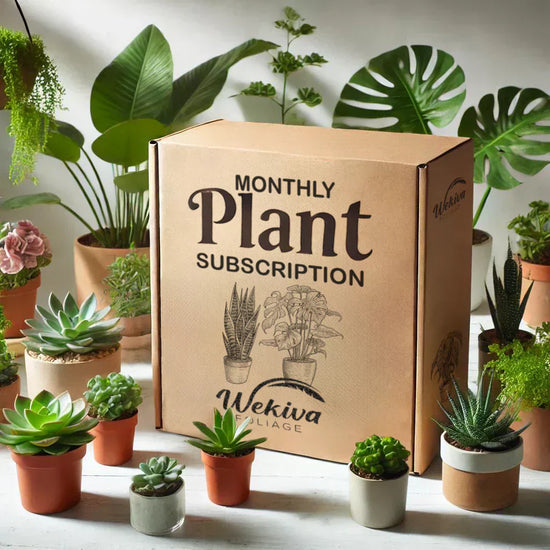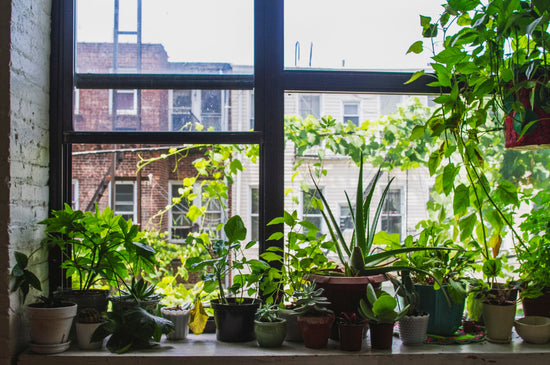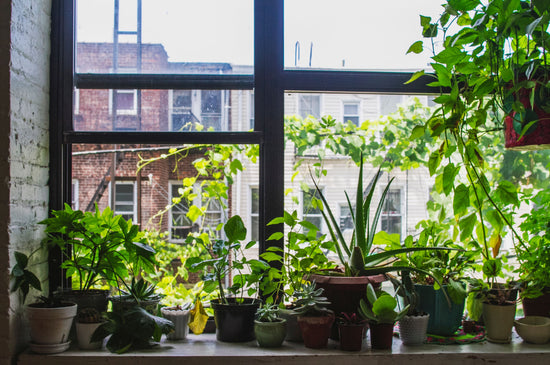Are Succulent Plants Poisonous to Cats? A Guide to Pet-Friendly Succulents
Succulent plants are a popular choice for homes due to their low-maintenance nature and aesthetic appeal. However, for cat owners, it's crucial to ensure that these plants are safe for their furry companions. While many succulents are non-toxic, some can pose a risk to your pets. Let’s explore whether succulent plants are poisonous to cats, the types of succulents to avoid, and safe alternatives for your home.
Are Succulent Plants Toxic to Cats?
The toxicity of succulents depends on the specific species. Some succulents contain compounds that can irritate a cat’s digestive system, leading to symptoms such as vomiting, diarrhea, or lethargy. It’s important to identify the types of succulents you have and understand their potential risks.
Toxic Succulents to Avoid
Here are some common succulents that are considered toxic to cats:
- Devil’s Backbone: Known for its unique, zig-zagged stems, this plant is toxic to cats if ingested. The sap can cause gastrointestinal upset or more severe reactions. Learn more about the Devil’s Backbone.
- Kalanchoe: This popular succulent produces beautiful blooms but contains compounds that are toxic to cats, potentially leading to vomiting or even heart arrhythmias in severe cases.
- Euphorbia Species (e.g., Pencil Cactus): Many Euphorbia plants, including the Pencil Cactus, have a milky sap that is highly irritating to cats.
Pet-Safe Succulents for Your Home
Not all succulents are hazardous to cats. Here are some safe alternatives to consider:
- Christmas Cactus: This festive plant is non-toxic to cats and can be a stunning addition to your indoor garden. Check out the Christmas Cactus for a pet-friendly option.
- Burro’s Tail: This trailing succulent is safe for cats and adds a unique texture to any space. Find a Burro’s Tail to complement your collection.
- Echeveria: Known for its rosette shape, the Echeveria Pink Trumpet is a safe and visually stunning choice.
Tips for Keeping Your Cat Safe
- Place Succulents Out of Reach: Cats are curious by nature, so it’s best to place your plants on high shelves or in hanging planters.
- Choose Pet-Safe Plants: Opt for succulents that are known to be non-toxic, such as the Mini Leaf Jade Plant.
- Educate Yourself: Familiarize yourself with the plants in your home and consult resources like ASPCA’s Toxic Plant Database if unsure about their safety.
FAQs
Q: Can succulents cause long-term harm to cats?
A: While many toxic succulents cause mild symptoms, severe cases can lead to long-term health issues. If you suspect your cat has ingested a toxic plant, contact a veterinarian immediately.
Q: Are there non-toxic trailing succulents for hanging planters?
A: Yes, options like the Burro’s Tail and Christmas Cactus are safe and work well in hanging planters.
Q: Where can I buy pet-safe succulents?
A: You can explore our Succulents Collection at Wekiva Foliage for a variety of pet-friendly plants, including the Christmas Cactus and Burro’s Tail.
Succulents are a fantastic way to enhance your home’s aesthetic, but it’s essential to choose pet-safe options if you have cats. With the right selection and care, you can enjoy a thriving collection of succulents without compromising your pet’s safety. Visit our Succulents Collection to find the perfect plants for your home today!





